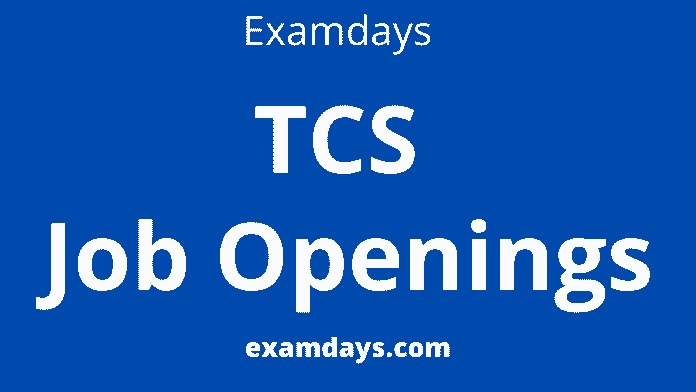Technology is playing an increasingly significant role in transforming and enhancing mental health care. With advancements in digital tools, artificial intelligence (AI), and emerging tech innovations, mental health care has become more accessible and scalable than ever before. This article explores the intersection of technology and mental health, delving into the impact of digital tools, the role of AI, the challenges and limitations faced, and glimpses into the future of mental health care.
Understanding the Intersection of Technology and Mental Health
At the heart of the revolution in mental health care is the integration of technology into traditional therapeutic approaches. This intersection seeks to leverage the power of technology to enhance treatment outcomes, improve accessibility, and broaden the reach of mental health care providers.
Defining Mental Health Technology
Mental health technology encompasses a wide range of digital tools, applications, and platforms designed to support individuals in managing their mental well-being. These tools include teletherapy platforms, mental health apps, wearable devices, and AI-powered chatbots.
The Evolution of Mental Health Care and Technology
The evolution of mental health care and technology is a dynamic process that has witnessed a shift from face-to-face consultations to online platforms. This shift has been accelerated by the demands of the digital age and the need for accessible and convenient mental health care options.
One of the key advantages of integrating technology into mental health care is the ability to provide treatment and support to individuals who may have limited access to traditional services. For example, teletherapy platforms allow individuals in remote areas to connect with mental health professionals without the need for travel. This not only saves time and money but also ensures that individuals in underserved communities have access to the care they need.
Furthermore, mental health apps have become increasingly popular as a tool for self-management and support. These apps often provide features such as mood tracking, guided meditation, and cognitive-behavioral therapy exercises. By utilizing these apps, individuals can actively participate in their own mental health care, gaining a sense of empowerment and control over their well-being.
Wearable devices, such as fitness trackers and smartwatches, have also entered the realm of mental health technology. These devices can monitor various physiological indicators, such as heart rate and sleep patterns, which can provide valuable insights into an individual’s mental state. By analyzing these data points, mental health professionals can gain a deeper understanding of their patients’ well-being and tailor treatment plans accordingly.
Another exciting development in mental health technology is the use of AI-powered chatbots. These chatbots are designed to simulate human conversation and provide support and guidance to individuals struggling with mental health issues. They can offer resources, coping strategies, and even crisis intervention, all in a confidential and non-judgmental manner. While chatbots cannot replace human therapists, they can serve as a valuable supplement to traditional therapy and reach individuals who may be hesitant to seek help in person.
As technology continues to advance, the intersection of technology and mental health holds great promise for the future of mental health care. From virtual reality therapy to machine learning algorithms that can predict mental health outcomes, the possibilities are endless. However, it is important to approach these advancements with caution and ensure that ethical considerations, privacy concerns, and the human element of care are not overlooked.
In conclusion, the integration of technology into mental health care is revolutionizing the field, offering new avenues for treatment, support, and accessibility. From teletherapy platforms to mental health apps and AI-powered chatbots, these digital tools are reshaping the way mental health care is delivered. As we continue to explore the intersection of technology and mental health, it is crucial to prioritize the well-being and autonomy of individuals, while harnessing the potential of technology to improve mental health outcomes for all.
The Impact of Digital Tools on Mental Health Care
Digital tools have reshaped the landscape of mental health care, offering new possibilities for both patients and providers. The integration of technology has revolutionized the way mental health services are delivered, making them more accessible, convenient, and effective. Two significant areas where digital tools have made an impact are teletherapy and mental health apps.
Teletherapy and Online Counseling
Teletherapy has emerged as a convenient and flexible way for individuals to access therapy from the comfort of their own homes. With the advancements in video conferencing technology and the availability of secure online platforms, individuals can now engage in therapy sessions with licensed mental health professionals regardless of their geographical location. This has broken down traditional barriers to care, allowing individuals in remote areas or those with limited mobility to receive the support they need.
Moreover, teletherapy offers a level of flexibility that was previously unimaginable. Patients can schedule appointments at their convenience, eliminating the need for time-consuming commutes and reducing the stress associated with traveling to a therapist’s office. This flexibility also enables individuals with busy schedules to prioritize their mental health without compromising other responsibilities.
Furthermore, teletherapy has proven to be particularly beneficial for individuals who may feel more comfortable in their own environment. The familiar surroundings of home can create a sense of safety and security, allowing patients to open up more easily during therapy sessions. This can lead to deeper and more meaningful therapeutic experiences, ultimately enhancing the effectiveness of the treatment.
Mental Health Apps and Their Effectiveness
Mental health apps have emerged as another powerful tool in the digital arsenal for mental health care. These apps offer a wide range of features and functionalities designed to support individuals in managing their mental well-being. From mood tracking and meditation exercises to cognitive-behavioral therapy techniques, these apps provide users with a comprehensive toolkit to monitor and improve their mental health.
Research has shown that mental health apps can be highly effective in promoting mental well-being and complementing traditional therapy. These apps provide individuals with a continuous source of support and guidance, empowering them to take an active role in their mental health care. By offering personalized recommendations and resources, these apps can help individuals develop coping strategies, manage stress, and improve their overall emotional well-being.
Furthermore, mental health apps have the advantage of being accessible at any time and from anywhere. With just a few taps on their smartphones, individuals can access a wealth of resources, including self-help articles, guided meditations, and interactive exercises. This accessibility ensures that individuals have the support they need, even in moments of distress or when traditional therapy may not be readily available.
In conclusion, the impact of digital tools on mental health care cannot be overstated. Teletherapy and mental health apps have revolutionized the field, making therapy more accessible, convenient, and effective. These digital tools have broken down geographical barriers, expanded access to care, and empowered individuals to take control of their mental well-being. As technology continues to advance, the potential for further innovations in mental health care is vast, promising a future where mental health support is readily available to all.
The Role of Artificial Intelligence in Mental Health Care
Artificial intelligence has the potential to revolutionize mental health care by providing personalized and efficient support. AI can assist in diagnosis and treatment planning, as well as in providing emotional support.
In the realm of mental health care, the integration of advanced technologies like Quantum AI is playing a pivotal role in transforming therapeutic approaches and treatment methodologies. While Quantum AI trading is predominantly associated with financial markets, its underlying principles hold immense potential in mental health care.
The sophisticated data analysis and pattern recognition capabilities of Quantum AI can be utilized to identify trends and patterns in patient behavior, responses to treatments, and even predict potential mental health crises. This level of insight allows for more personalized and effective treatment plans.
Moreover, the speed and efficiency of https://quantumaiplatform.com/ in processing complex datasets mean that mental health professionals can access real-time analytics to make informed decisions, thereby enhancing the quality and responsiveness of mental health services.
AI in Diagnosis and Treatment Planning
AI algorithms can analyze vast amounts of data and identify patterns that may be indicative of certain mental health conditions. This can help clinicians in making more accurate diagnoses and tailoring treatment plans to individual needs.
AI in Providing Emotional Support
AI-powered chatbots and virtual assistants have shown promise in providing emotional support to individuals who may not have access to immediate human assistance. These technology-driven companions can offer empathetic responses, provide coping strategies, and even assist in crisis intervention.
The Challenges and Limitations of Technology in Mental Health Care
While technology offers numerous benefits in the field of mental health care, there are challenges and limitations that need to be addressed.
Privacy and Security Concerns
The collection and storage of personal health data in digital platforms raise privacy and security concerns. It is crucial to develop robust safeguards to protect individuals’ confidentiality and prevent unauthorized access to sensitive information.
Accessibility and Digital Divide Issues
Not everyone has equal access to technology and internet connectivity, creating a digital divide in mental health care. Efforts should be made to bridge this gap and ensure that underserved populations are not left behind in the digital revolution.
The Future of Technology in Mental Health Care
The future of mental health care holds immense potential for leveraging technology to advance treatment options and outcomes.
Emerging Tech Innovations in Mental Health
Emerging technologies such as virtual reality (VR), augmented reality (AR), and machine learning algorithms present exciting possibilities for immersive therapies, personalized interventions, and even early detection of mental health conditions.
The Potential of Virtual Reality and Augmented Reality in Mental Health Care
Virtual reality and augmented reality have shown promise in their ability to simulate environments and experiences, creating opportunities for exposure therapies, stress reduction, and immersive relaxation exercises. These technologies have the potential to revolutionize mental health care, providing unique and effective interventions.
As the field of mental health care continues to evolve, technology will remain an essential catalyst in enhancing treatment options and improving overall mental well-being. With the right balance of ethical considerations, research, and innovation, technology can empower individuals and contribute to a future where mental health care is inclusive, accessible, and effective for all.
Examdays Article Agenda




